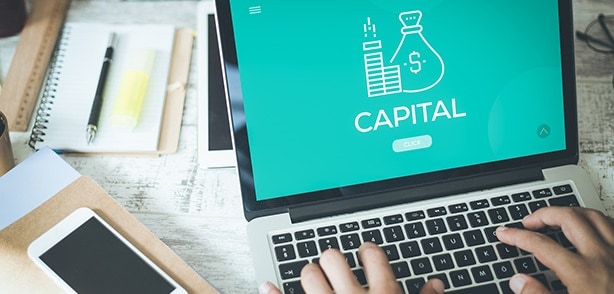January 19, 2021
Should You Pay Off Your SBA Loan Early?
While a lengthy repayment period can be beneficial, you may find that it makes sense to pay off your SBA loan early. By doing so, you can free up more cash flow and reduce your monthly expenses. So is paying off an SBA loan early a good idea? Keep reading to find out.


How to Determine If Your Business Should Pay Off an SBA Loan Early
Early Payoff Penalty for SBA 7(a) Loans
The SBA 7(a) loan is the most common type of SBA loan that can be used to cover general expenses. If your loan’s terms exceed 15 years, you’ll have to pay a prepayment penalty. Generally speaking, the purpose of the penalty is to allow your lender and the SBA to recoup the interest they’ll lose. The fee you’ll pay will depend on the timing of your prepayment. Here’s a brief overview of what it may be.- 1st year: 5% of the total prepayment amount
- 2nd year: 3% of the total prepayment amount
- 3rd year: 1% of the total prepayment amount

Early Payoff Penalty for SBA 504 Loans
The SBA 504 loan is another type of SBA loan that offers long-term financing to help purchase real estate, equipment, and other fixed assets. This type of agreement involves three parties; the SBA, lender, and the SBA-approved certified development company or CDC. Also, this SBA loan comes with a prepayment penalty that's based on your timing. Its structure is as follows:- 1st year: 3% of the total prepayment amount
- 2nd year: 2.7% of the total prepayment amount
- 3rd year: 2.4% of the total prepayment amount
- 4th year: 2.1% of the total prepayment amount
- 5th year: 1.8% of the total prepayment amount
- 6th year: 1.5% of the total prepayment amount
- 7th year: 1.2% of the total prepayment amount
- 8th year: 0.9% of the total prepayment amount
- 9th year: 0.6% of of the total prepayment amount
- 10th year: 0.3% of the total prepayment amount
- 11th year and up: 0.0% of the total prepayment amount

Pros of Paying Off Your SBA Loan Early
Although you may risk prepayment penalties, there are benefits to paying off an SBA loan early that you should consider. The greatest advantages of paying off your SBA loan program early include the following:- Save on Interest Charges: If you pay off your loan early, you’ll save thousands of dollars in interest over its life.
- Free Up Cash Flow: Without a loan payment, you’ll be able to free up cash flow and reinvest more money in your business.
- Peace of Mind: The less debt your business has, the greater peace of mind you’ll enjoy, especially if you often go through slow periods.
Cons of Paying Off Your SBA Loan Early
As previously mentioned, paying off an SBA loan early has consequences that are worth considering. If you decide to pay off your SBA loan early, keep these drawbacks in mind:- Loss of Tax Deduction: You won’t be able to deduct the interest you pay on your SBA loan if you pay if off early.
- Early Payoff Penalty: Depending on the math, an early payoff penalty may defeat the purpose of paying off an SBA loan early. If it's going to cost you more money, it will only hurt your business's finances.
- Lost Chance to Build Credit: If you pay off your loan early, you may miss out on time to build or improve your credit score. Many business owners take out a loan knowing that making their payments on time will benefit their credit, especially if they don't already have strong credit history.
Is Paying Off an SBA Loan Early Worth It?
Before you take the plunge and pay off your SBA business loan early, make sure it’s a good idea for your business's future. First, you should determine how much you can save by doing so by adding up the total you’d spend on interest, plus any continuous fees. Then, subtract any prepayment penalty or other fees. If the figure you come up with is positive, you may want to pay off your loan early. On the other hand, if it’s negative, doing so may cost you more than you'd save.What If You Can’t Pay Off Your SBA Loan Early?
If you can’t pay off your SBA loan amount early, don’t worry; as long as you make your monthly payments, you should be in good shape. In the event you’re struggling financially and can’t make payments, consult your lender. In most cases, they can design an alternative repayment plan to help you get back on track with your repayment process. Don’t be afraid to reach out to your lender, as they can help you avoid a variety of consequences. They work with many small businesses seeking SBA-backed loans and know what it takes to navigate difficult situations. With your lender’s support, you may be able to avoid a loan default. As you likely known, defaulting on a loan can lead to serious consequences. The following may happen if you default on your loan:- Your lender may seize and liquidate any assets you listed as collateral.
- The SBA will send you a 60-day demand letter to begin the debt collection process.
- You may damage your reputation with the SBA.